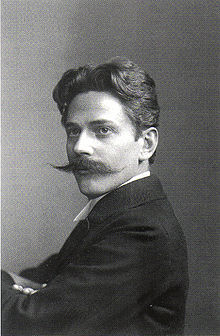Chicago Ensemble unearths two piano quintets worthy of rediscovery
One can always count on the Chicago Ensemble to dig up buried musical treasures that one didn’t know existed. They presented two such rarities and one semi-staple Sunday afternoon at the International House at the University of Chicago, before an audience of abstainers from the Super Bowl.
All three pieces on the program were scored for piano quintet. The Chicago Ensemble’s artistic director Gerald Rizzer was the pianist, and the quartet consisted of violinists Stephen Boe and Renée-Paule Gauthier, violist Paul Vanderwerf, and cellist Andrew Snow.
The first forgotten work on the program was Bohuslav Martinů’s Piano Quintet No. 2, as fine a piece as this much-underrated composer ever penned. Written during Martinů’s wartime exile in the United States, the quintet displays both sides of his musical background. Folk-inspired melodies reflecting his Czech heritage are interspersed with motoric, driving sections reflecting his French Neoclassical training.
The performers did justice to both of these aspects. Boe’s solo in the Adagio struck exactly the right tone: catching the melody’s melancholic quality, without turning mawkish. The entire ensemble effectively built the tension in their layering of the overlapping lines in the Largo sections of the finale.
The second forgotten work on the program was the Piano Quintet in E-flat major of Ludwig Thuille, a friend and contemporary of Richard Strauss. Thuille died young in 1907, and his quintet’s distinctly fin-de-siècle flavor is like a hybrid of Strauss and Brahms. Although its tendentiousness mars any bid for masterpiece status, it nonetheless has many fine moments. These include a beautiful main melody in its Adagio and a whimsical pizzicato-led fugato in the development section of its finale.
Plentiful heaps of unapologetic sentiment are required to bring this piece off, and the players had no trouble supplying this. Some minor moments of unglued ensemble at the start of the scherzo and the recapitulation did little to distract from the general high quality of the playing. Particularly fine was the dark, rollicking humor the ensemble brought to the climaxes of the outer sections of the scherzo.
The one non-rarity rounding out the program was Gabriel Faure’s La bonne chanson (his settings of nine poems by Paul Verlaine), in the composer’s own arrangement for vocalist and piano quintet.
The singer was baritone Brian Cox, whose timbre was unfailingly warm and natural. But although he phrased well from a purely musical perspective, he did little to project an interpretation of the text, and one would guess the meaning of any word in vain from his delivery. Cox gave a fine performance of Fauré’s music perhaps, but shortchanged Verlaine.
Whatever illustrative nuances were missing from Cox’s performance were made up for by the musicians’ accompaniments. The rising sun rippling upwards through Rizzer’s fingers in “Puisque l’aube grandit,” the flock of quails stirring into flight in the strings in “Avant que tu ne t’en ailles,” and the sounds of Spring awakening in the whole ensemble in “L’hiver a cessé”—all of these poetic moments were vividly painted by the instrumentalists.
Posted in Performances



Posted Feb 08, 2016 at 4:52 pm by Odradek
Martinu is definitely a composer undergoing a much deserved re-discovery. The Piano Quintet is one of his best chamber works, and his oratorio “Gilgamesh” will be featured at Grant Park this summer.